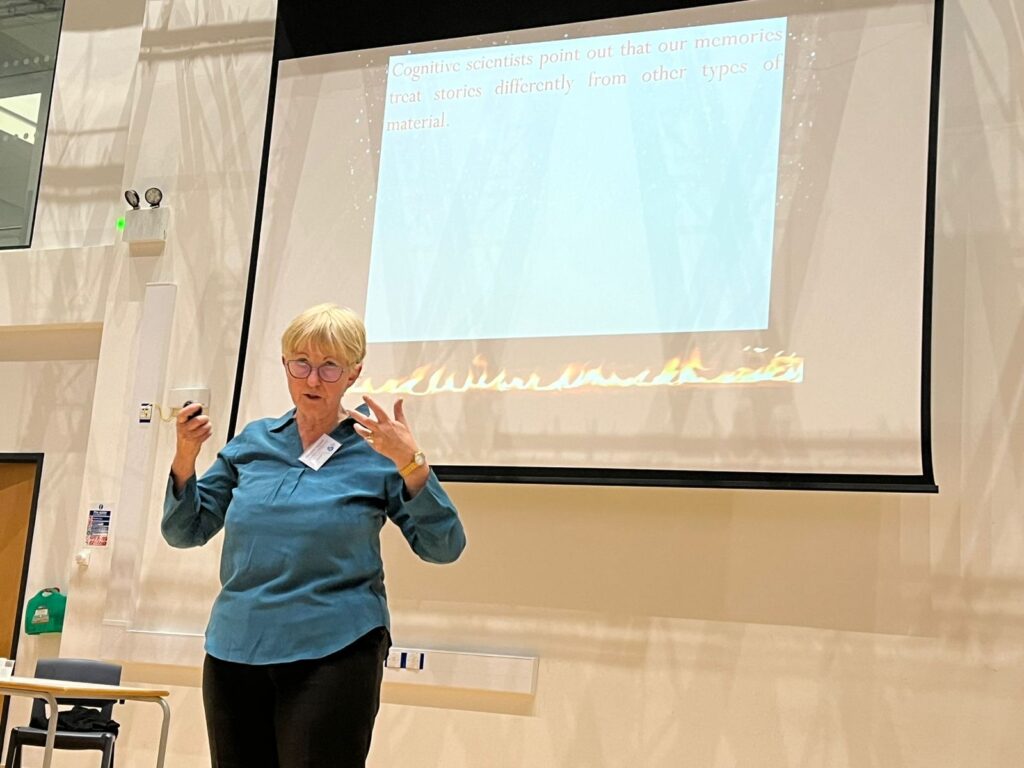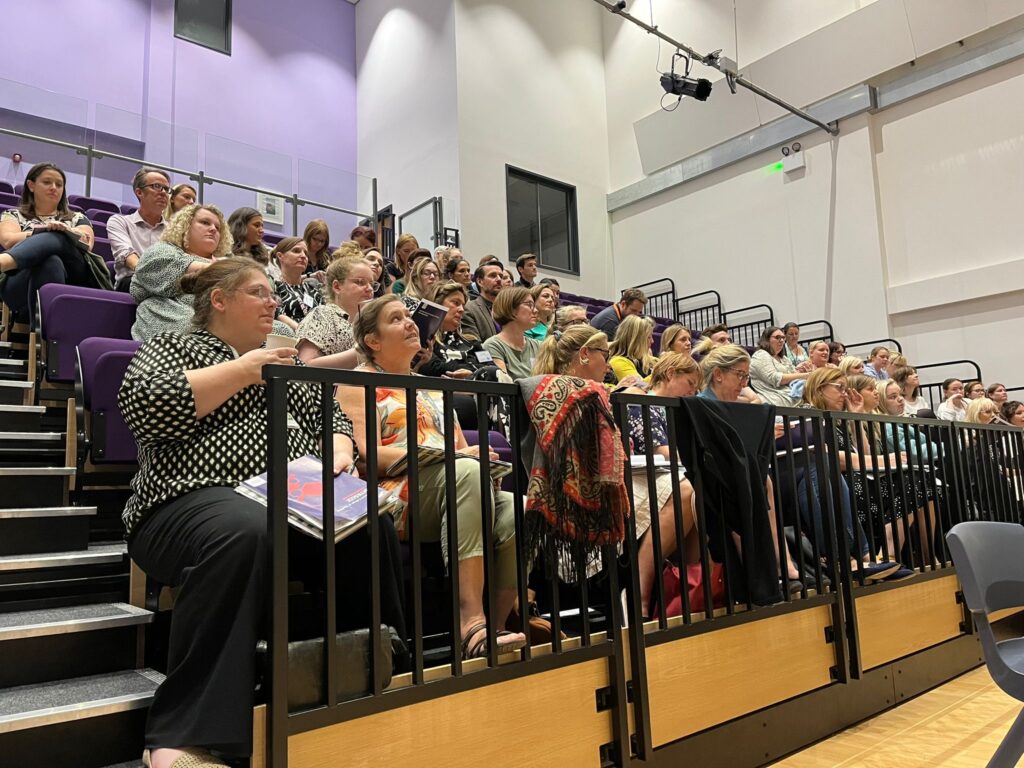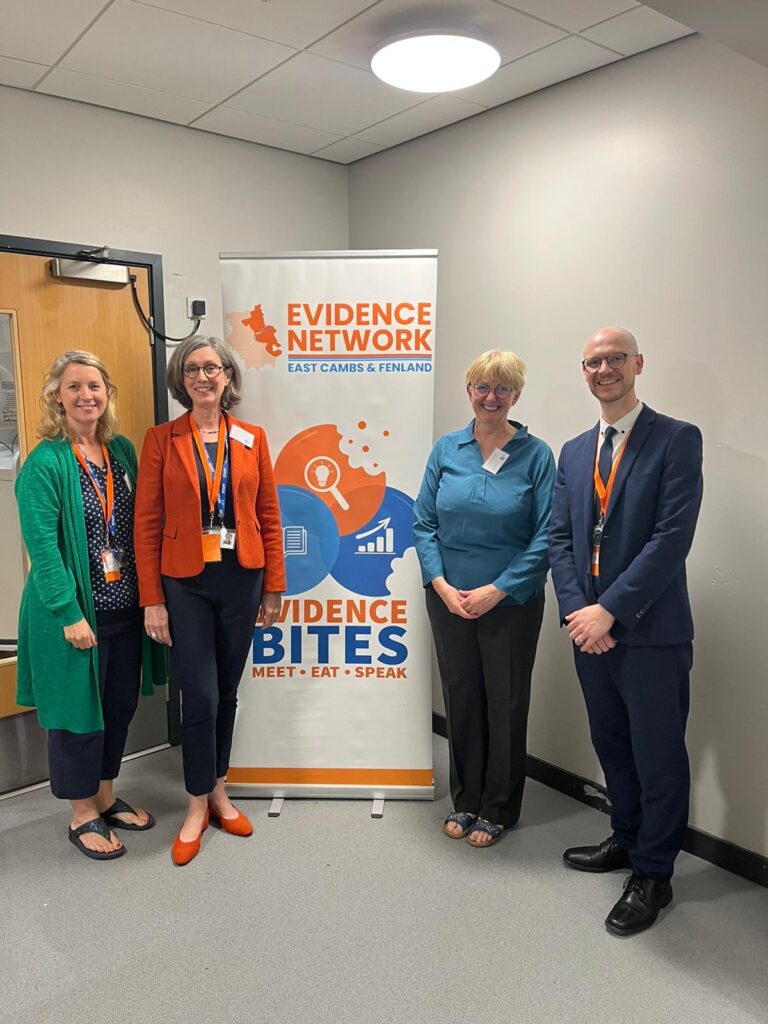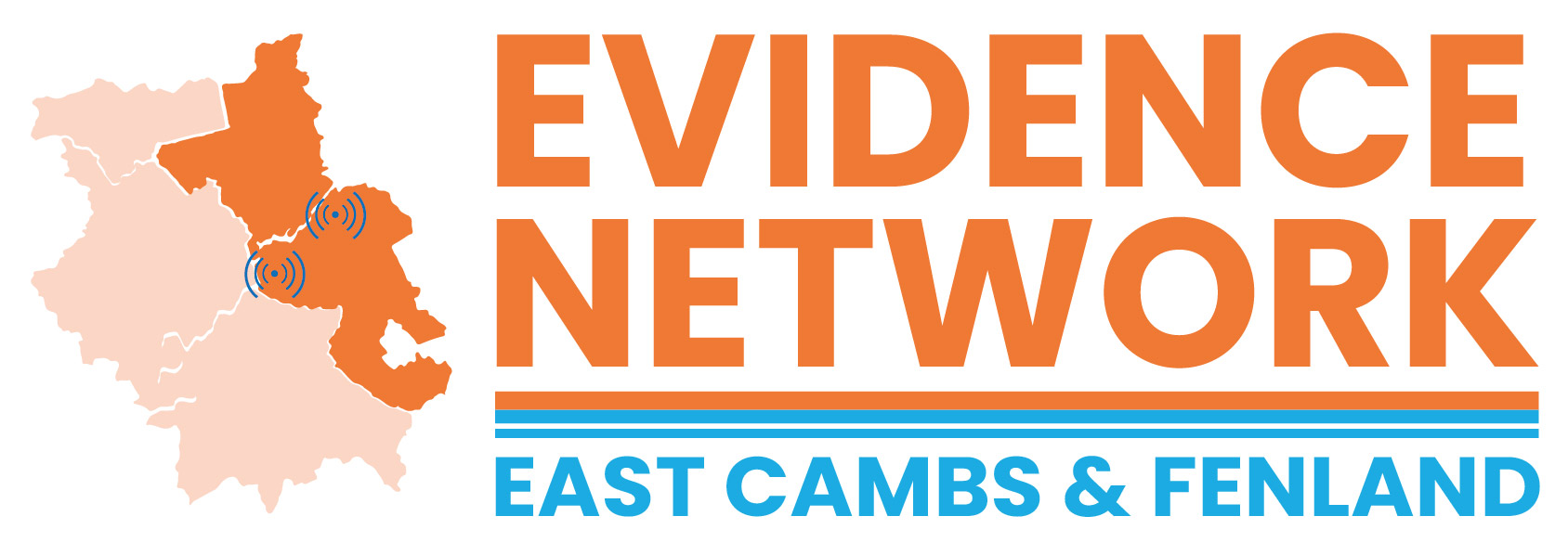By Elaine Crane, Alderman Jacobs Primary School Headteacher and Evidence Advocate
Understanding the role of story in a knowledge-rich curriculum

Grab a cup of tea, pull up a chair and settle down to a good story. At our third Evidence Bites event in October, leading advisor and thinker on curriculum Christine Counsell invited the audience to do just that. And what a story it was! We were intrigued by the tale of a young Aethelflaed, the eldest (often forgotten) daughter of Alfred the Great, as her family feared the invasion of the Danes….
But this wasn’t the only story on offer. Christine expertly told us the story of memory and the process of encoding, consolidating and retrieving that we engage in when we listen to stories like Aethelflaed’s. Building on Daniel Willingham’s seminal work, Christine demonstrated how stories engage the listener, building knowledge by giving us information in context, and holding us safely in their well-known structures and patterns, all of which are crucial to remembering. As Willingham states, ‘The human mind seems exquisitely tuned to understand and remember stories—so much so that psychologists sometimes refer to stories as “psychologically privileged,”.
Story-telling may lend itself more obviously to history lessons but Christine shared how the entire curriculum can be underpinned by tales of real people and events. She explained that story can help us connect with subjects and build our fascination for them; who wouldn’t love to be inspired by a science teacher who shares their passion by telling the stories behind the most vital discoveries and theories? As Christine shared so eloquently, ‘science lives above the details’ and while those details may be what we want students to remember, learning why they are so vital in the form of a story or using story as a means of explaining an abstract concept, can be an impactful way of building knowledge retention and engaging pupils with the subject.

Finally, the role of story in building language and communication is vital. When we listen to stories, we infer meaning; we think as we listen and form questions or opinions; we pay attention; when we know a good story, we can’t wait to share it. These skills are key for the youngest learners to develop and why story features so much in the Early Years – building story-telling into each subject for all ages will build more than their memory.
Thank you to Christine for sharing her knowledge and insights – like all good stories, the evening left us wanting to know more.
References:
Willingham, D. T. (2009). Why don’t students like school? A cognitive scientist answers questions about how the mind works and what it means for the classroom. (P51)
Beauchamp A (2022) Living and Learning inside the story: How storytelling can shape curriculum design. Impact 14: 43-45. (Accessible via Chartered College of Teaching Subscription)



Comments are closed